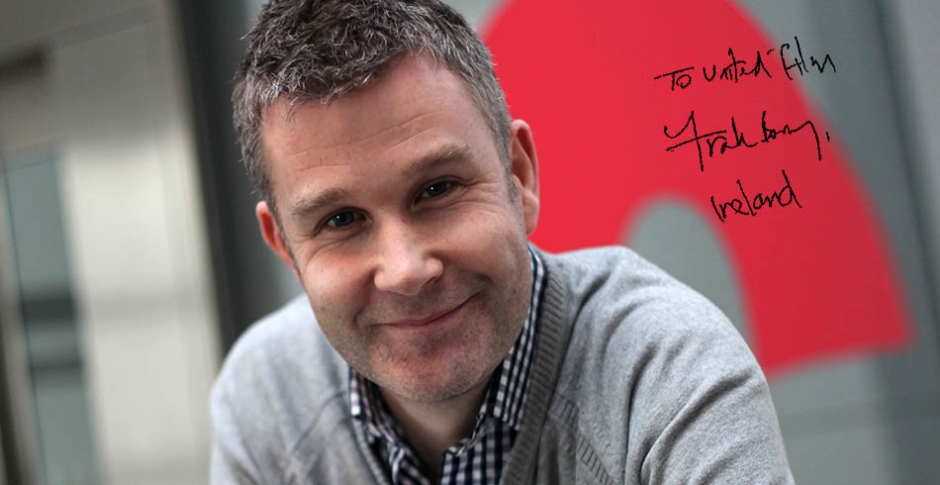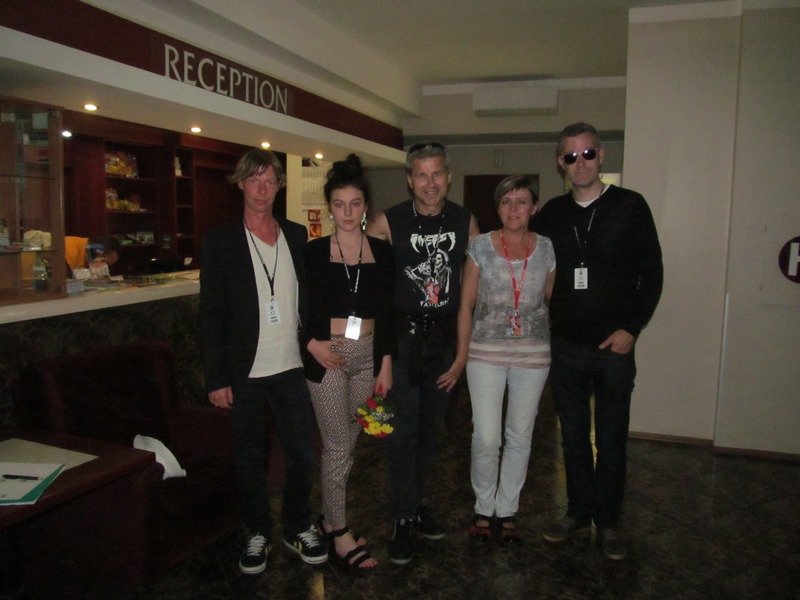Frank Berry: I have always been passionate about films
Written by Eva Csölleová, Vítek FormánekIrish director Frank Berry was a guest of Zlín film festival 2015 where he introduced his brand new film “ I used to live here”.Since we don´t know much about Irish film and the topic of his film was interesting, we asked him for interview.He was very supportive and pleased with our interest which showed in his answers.
Was filming your childhood dream or something put you on that way later on, if the latter, what was it?
I have always been passionate about films. It wasn't until I reached my late teens that I considered filmmaking as a possible career. Back then my interest in directing was as strong as my interest in music, photography, writing and editing, and there was a time when I could have gone either way.
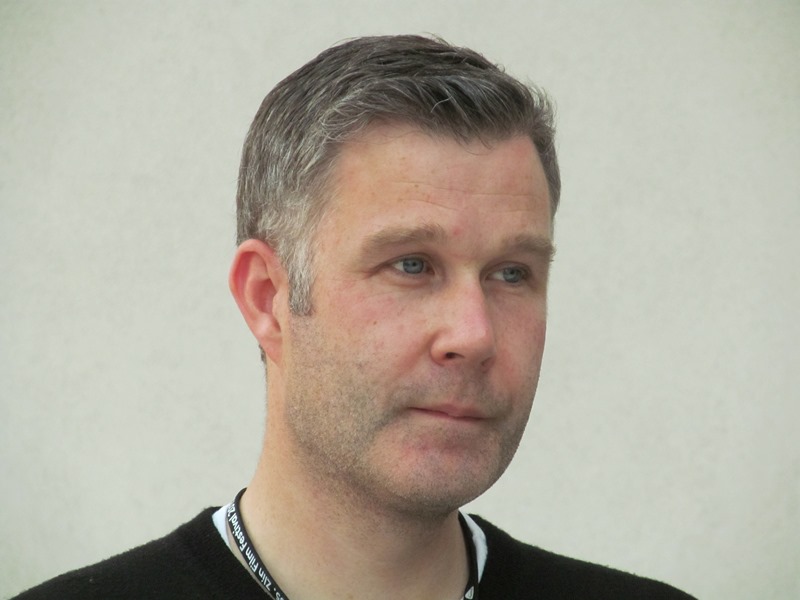
My primary degree is in Media and Communications, a broad media degree which I started in Colaiste Dhulaigh in Dublin and finished in the University of Wolverhampton in the UK. The course involved video production, so I made my first documentaries at that time. I didn't study filmmaking properly until post graduate level, when I studied at the Dublin Institute of Technology. I was one of two directors chosen to direct the final films, and that encouragement led me to direct again when I graduated.
What were and what are possibilities for young directors in Ireland?Do you have any artistic school in Dublin or elsewhere or you had/have to go to England?
There are many options to study film in Ireland, both academically and practically. Most of the Universities have film departments here. We have a National Film and Television School, many Degrees in other colleges that include filmmaking, as well as Further Education courses that provide a pathway onto those courses.
Do you intend to learn anything from script writing, editing, producing, composing so you will be very much independent or you stay „ classic“ director, only doing you job directing other people?
A few years after I left college I began focusing on the work I was finding most fulfilling, which was making community videos and videos for charity organizations. These projects were mostly DVDs for initiatives that had something important to say, but didn't have big budgets. I felt a lot of freedom doing those projects and found real meaning in them. I would write, produce, direct and edit them, and I used the same cameraman for almost all of them. It was working in this way that I found my feet as a filmmaker I think, and this work led to my first feature documentary 'Ballymun Lullaby'.
How is filmmaking supported in Ireland, do you have any state support, ministry grants you can apply for or you have to fend for yourself, and find private money. State money goes from England or from Ireland?
We have the Irish Film Board which is a state funded organization, who played a part in the funding of both my films. They are filmmaker focused, genuinely encouraging, and normally the first stop for Irish filmmakers when seeking financing. The Irish Film Board of course have limited budgets, and there are other organizations such as the Broadcasting Authority of Ireland, RTE Ireland's national broadcaster, and Section 481 which is a Tax Break Scheme. A growing trend in recent years has seen many Irish productions, with a budget commonly above 1 million, funded with European Co-production financing.
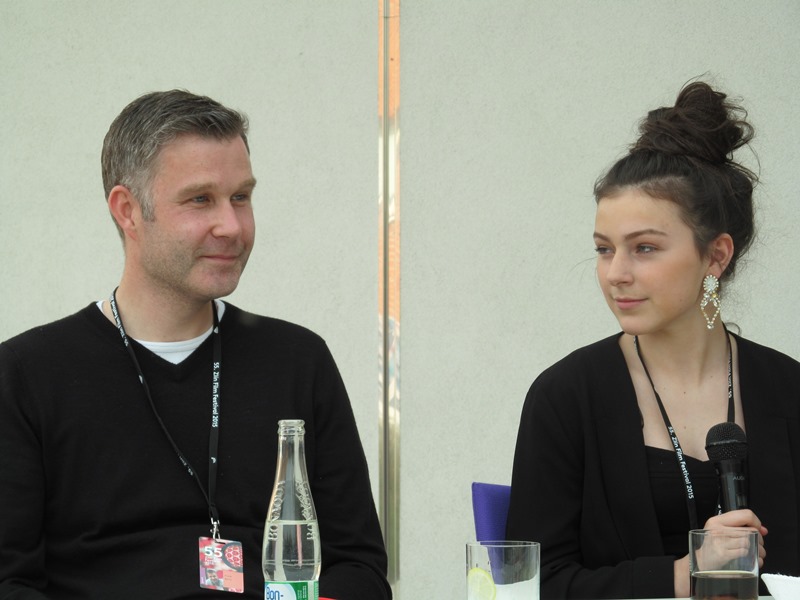
Ireland has many film festivals. To name a few, we have the Galway Film Fleadh, the Dublin International Film Festival, the Cork Film Festival, the Foyle Film Festival, the Stranger than Fiction Documentary Festival, and many more internationally acclaimed festivals too. We have two primary film studios, Ardmore Studios, and Ashford studios, with a third currently being built in Limerick. In the current Irish Film Board catalogue, twenty six feature film dramas are listed as completed this year, as both indigenous and international co-productions. In addition they supported many feature documentaries, high-end television productions and short films. Similarly to what has been happening around the world, Ireland has also seen a sudden rise in independent no-to-low budget funded feature films by first time directors. The quality of these films of course vary, but this sector has produced some great talent in recent years.
Tell me about your company(how many people, how many films, year budget)Did you establish that to be some kind of body when dealing with partners and asking for money or you just try to be solidly looking independent director?
Our company is Write Direction Films which I run with my producing partner Donna Eperon. The company was set up primarily to facilitate my own productions, but we also co-produce with other companies which we are currently doing with my next film.
Do you try to build your own team with which you would make most of your films or you prefer working with different people every time? What is important aspect for you when choosing a crew? Dedication, effort or professionalism and skill (without visible sheer enthusiasm and dedication.)
I try to keep as many people with me as possible. Professionalism is of course very important, but to me character is the most important part of a filmmaking collaboration. I am not necessarily looking for anyone to reproduce what they have done before, but for interesting ideas they can bring to this project. My cinematographer on I Used to Live Here had never shot a drama of any sort before, but I liked him and his ideas, and felt instinctively that together we could do it. If I connect with the person personally and creatively I feel we will get there regardless of any difficulties or shortcomings, whereas if that connection is not there, no amount of experience or talent can make the film work in the same way.
Your latest film“I used to live here“ is about suicides.You used non-professional cast and declared „ open door policy“. Did you try to create some kind of neo-realism in your movie which couldn´t be made with pro –actors?
When I started I really didn't know how the film was going to develop. I was working in a community that had suffered from a series of suicides in recent years, and my gut feeling at the start was not to turn anyone away who wanted to get involved. So there were no auditions as such and we made it an open door policy, where anyone could get involved either in front of or behind the camera. Over time I encouraged people to go in the direction that I felt best suited them, which worked well. Along the way I tried not to think too much about my approach, but instead tried to listen to my feelings. It really was a great thing to do. As crazy as any idea sounded out loud, if it felt right to me, then I went with it. So I cast almost everyone from the one community centre. We filmed in their homes, and on their streets. We bonded, and the participants started to feel involved in something important. The film was giving them a voice, and although the script was responsibly researched (with assistance from Ireland National Centre for Youth Mental Health) and prewritten, they started to bring their own experiences, language, and feelings into the story. I think this approach achieved a great sense of realism that would be much harder to achieve with a more formal technique.
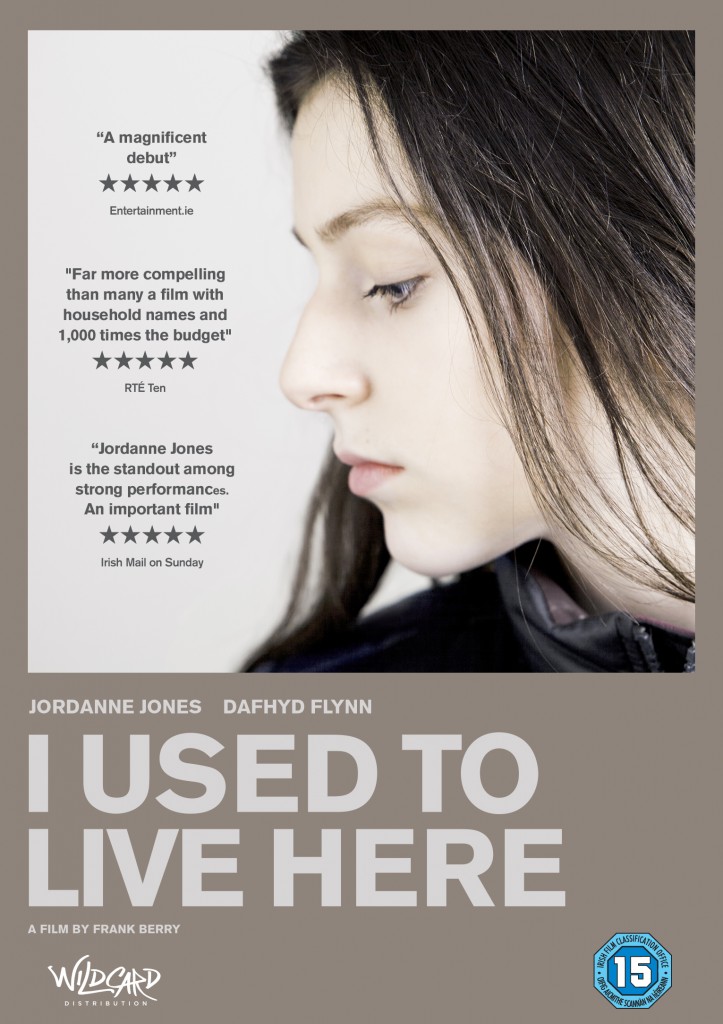 Your method of not having any rules and that anybody who wanted to get involved got involved... do you think it was necessary for this particular film or it generally may be the way how independent film makers could work in the future?
Your method of not having any rules and that anybody who wanted to get involved got involved... do you think it was necessary for this particular film or it generally may be the way how independent film makers could work in the future?
I would certainly advocate the approach of listening to your instincts in relation to the story you are telling, and see where that takes you. I think as a filmmaker your process is a very important part of finding your voice. With bigger budgets there are obviously bigger pressures, so while making low budget films I would encourage any filmmaker to use the opportunity to experiment and find a way of working that is personally satisfying rather than adapting to an existing approach.
Using non- professional cast may be double edge sword.They are authentic but it takes longer time to direct them.Using pro-actors could also be double edge sword.They already have experience so will be easily directed but may loose their innocence and authenticity(and are more expensive).Which group would you prefer to work with in your future films?
I see my future films as always having some connection to real world experiences, either by working with non-professional actors, or researching heavily with community groups etc. I have always loved those Jimmy McGovern dramas such as Hillsborough, Dockers and Sunday, where the audience is aware of an integrity to the research.
“I used to live here“ created wide discussion. Is it something you were aiming for or it is a bonus with which you didn´t count and it showed you pitched into wasps nest?
I was very mindful about the sensitivity of the subject matter from the very outset, which is why my first action was to approach the author of the Irish Times articles that inspired the film Dr. Tony Bates, who is also the founding director of Ireland's National Centre for Youth Mental Health. I felt I had positioned myself responsibly from the start, and it was through my research there that I connected with the community participants from Killinarden. When I first read Tony's articles, I was struck by how tragic it is that the issue of suicide clusters is not quite common knowledge in society. I felt that a way to combat the power of exposure to a suicide, particularly among young people, is to understand the dynamic involved in suicide clusters. By putting a fictional story up on the screen, I thought we could find a way of communicating this, without exposing the audience to any real tragedies. The idea was born out of a passionate desire to inform people that when a suicide tragedy takes place in a community, we need to be vigilant and aware that further suicides can occur.
Do you intend to focus on socially hot topics and stay as raw and realistic as possible in future films, or this was-one off thing and you will also film movies with animation, special effects and hope to earn megabucks?
I would imagine that I will stay with realistic subjects that interest me. For example, at the moment I am working with a group of former prisoners who are in an educational environment. We are telling a story called 'Michael Inside' about a young man who goes to prison for short time, and the film explores how the experience affects his life. It's a film about society as much as it is about prison. It will involve a mix of established actors and non professional actors.
What is the platform for independent film in Ireland, any festivals or places to screen films, discuss them, exchange views and distribute films?
The filmmaking environment is very active and exciting in Ireland. As I mentioned we have the film festivals where everyone meets up regularly and we have the Irish Film Board events, but also we have organizations like the Screen Directors Guild of Ireland (the people behind Digital Biscuit) the Irish Film and Television Academy, Screen Producers Ireland and the Irish Film Institute, who all regularly host events and screenings.
Is it difficult to get your film into wider audience in cinemas or it was kind of „unwanted“ by bigwigs who burry their head into sand rather then admit the problems and truth?Showing „Captain America“ kind of movie is less controversial then „ I used to live here“ isn?t it?
Yes it is very difficult for films like this to get out there. Luckily for I Used to Live Here we have a very supportive and passionate ally in Wildcard Distribution who have released the film in Ireland. Both my films Ballymun Lullaby and I Used to Live Here were made without a production budget, and have received cinema releases here – the former via the Irish Film Board's direct distribution fund. The international rights are still available.


